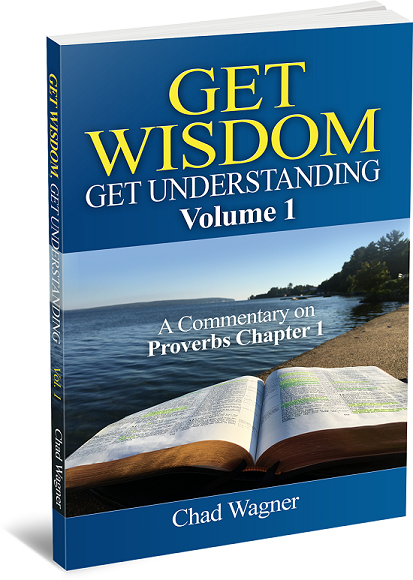Subscribe to Pastor Wagner's Blog
Blog - Proverbs 1:21

Solomon here elaborates on his previous declaration that wisdom cries publicly without and in the streets (Pro 1:20). She doesn't choose to proclaim her message in empty roads or barren highways, but rather in the busiest of streets, the chief (highest in rank - OED) place of concourse (the flocking together of people - OED). In other words, wisdom cries in the midst of the crowd in order to be heard by the greatest amount of people possible, and therefore no man can fault God for not informing him of His truth, for He "commandeth all men every where to repent" (Act 17:30). Not only does wisdom cry in the bustling boulevards, but in every corner of the earth, for "the heavens declare the glory of God; and the firmament sheweth his handywork" (Psa 19:1), and "the invisible things of him from the creation of the world are clearly seen, being understood by the things that are made, even his eternal power and Godhead; so that they are without excuse" (Rom 1:20). The apostle Paul asked rhetorically, "have they not heard?" to which the answer is "yes verily, their sound went into all the earth, and their words unto the ends of the world" (Rom 10:18). Wisdom also cries in the opening of the gates and in the city. The gates were the entry of a city (Pro 8:3). Cities in Solomon's day were walled with gates allowing access to them. Thus the gates were bottlenecks of entry where condensed crowds of people served as the most efficient place for wisdom to utter her words. The gate of a city was also the place where the elders of the land assembled and civil judgment occurred, a city hall of sorts (Deu 22:15; Pro 31:23; Amo 5:12,15). If there is ever a place where the cry of wisdom is needed it is in the places of judgment. Courts are often corrupt which, Solomon knew first hand and made clear when he lamented, saying, "I saw under the sun the place of judgment, that wickedness was there" (Ecc 3:16). The scripture declares that "he that ruleth over men must be just, ruling in the fear of God" (2Sa 23:3), but without godly wisdom there is no justice, for it is by wisdom that "princes decree justice" (Pro 8:15) and "princes rule, and nobles, even all the judges of the earth" (Pro 8:16). Neither judges nor the judged will have standing to plead ignorance in God's court on judgment day, for wisdom cried unto them at every turn while they walked the streets of life. For a practical application of this verse, if a Christian is looking for a place to preach the wisdom of God, he could apply Solomon's words in a modern-day context when at the airport and preach the gospel in the concourse at the gates. Such would be poor hermeneutics, but might make for an interesting day of travel.
